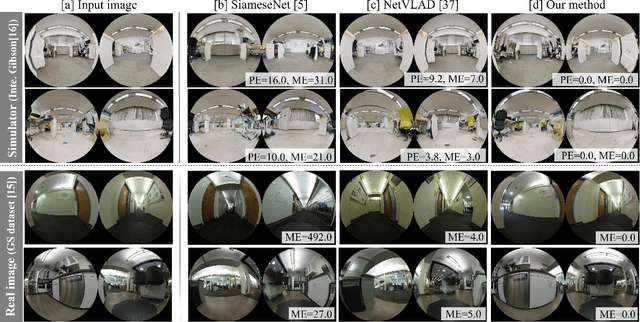Takahiro Niwa
Spatio-Temporal Graph Localization Networks for Image-based Navigation
Apr 28, 2022



Abstract:Localization in topological maps is essential for image-based navigation using an RGB camera. Localization using only one camera can be challenging in medium-to-large-sized environments because similar-looking images are often observed repeatedly, especially in indoor environments. To overcome this issue, we propose a learning-based localization method that simultaneously utilizes the spatial consistency from topological maps and the temporal consistency from time-series images captured by the robot. Our method combines a convolutional neural network (CNN) to embed image features and a recurrent-type graph neural network to perform accurate localization. When training our model, it is difficult to obtain the ground truth pose of the robot when capturing images in real-world environments. Hence, we propose a sim2real transfer approach with semi-supervised learning that leverages simulator images with the ground truth pose in addition to real images. We evaluated our method quantitatively and qualitatively and compared it with several state-of-the-art baselines. The proposed method outperformed the baselines in environments where the map contained similar images. Moreover, we evaluated an image-based navigation system incorporating our localization method and confirmed that navigation accuracy significantly improved in the simulator and real environments when compared with the other baseline methods.
 Add to Chrome
Add to Chrome Add to Firefox
Add to Firefox Add to Edge
Add to Edge